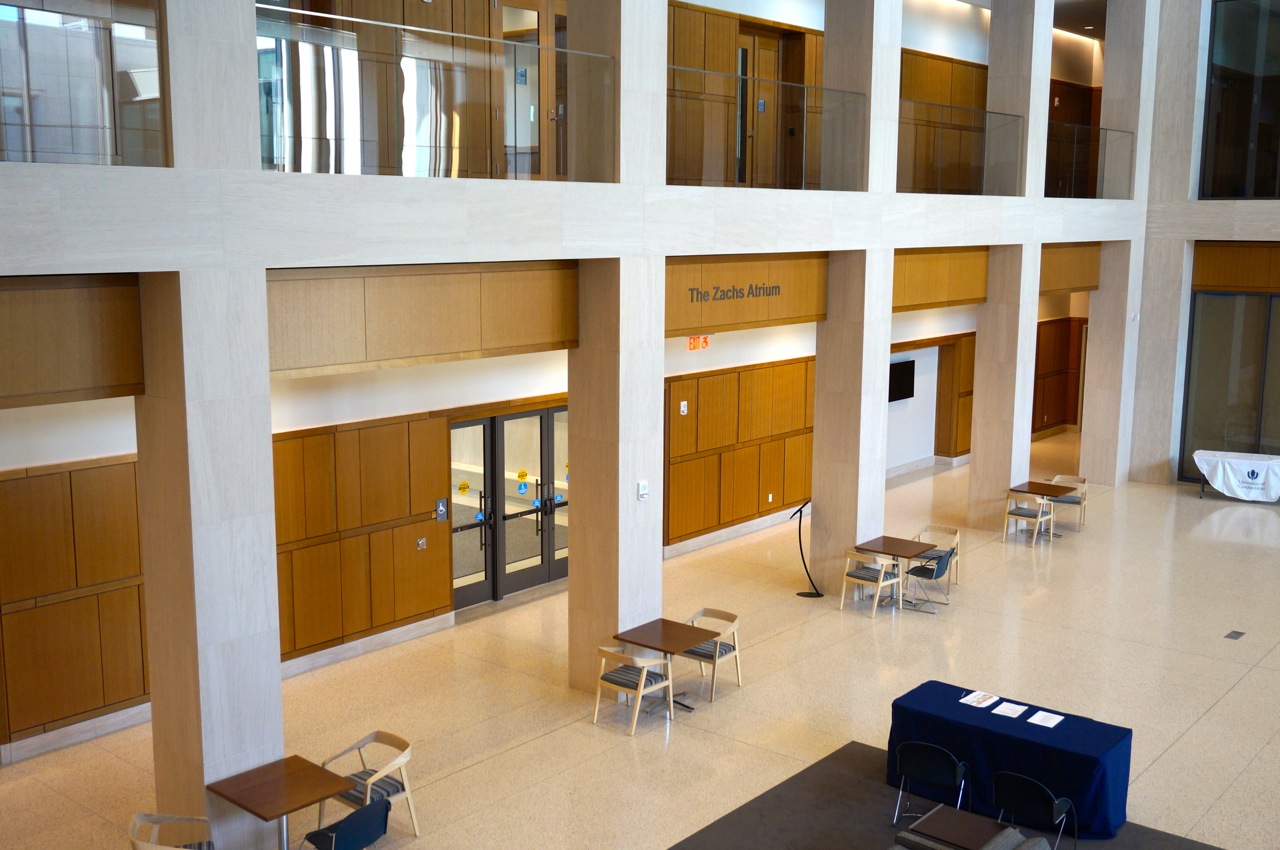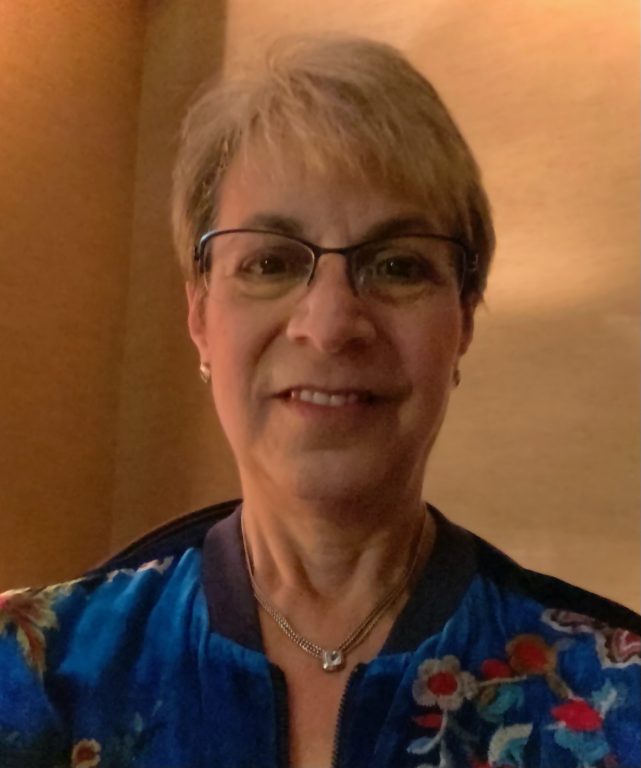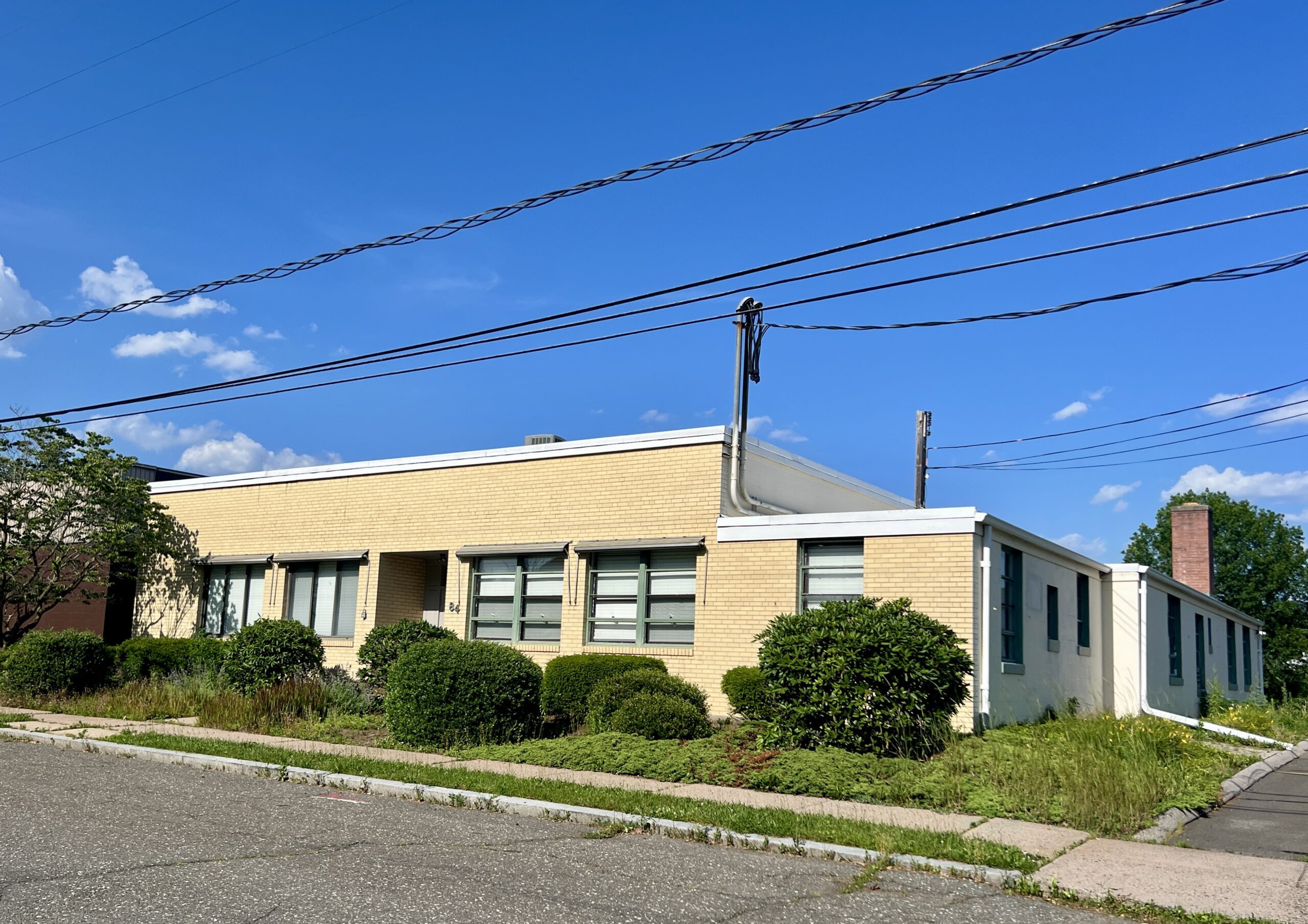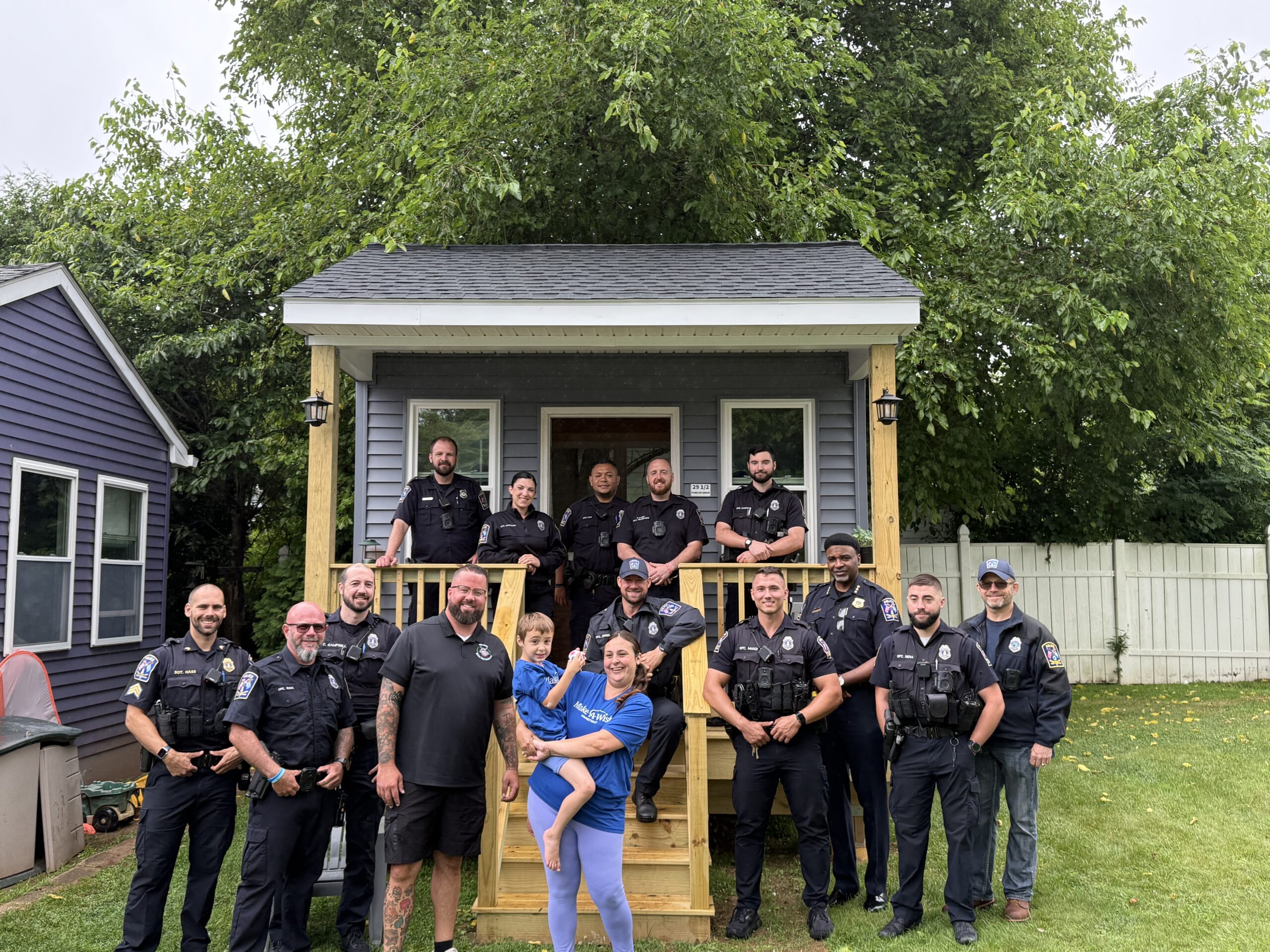College Bound: College – Not Just for the Young Anymore

Audio By Carbonatix

UConn Hartford building at 10 Prospect St. Photo credit: Ronni Newton (we-ha.com file photo)
We-Ha.com will be publishing a series of essays/blogs/reflections on the issue of going to college – primarily a set of thoughts and musings, along with some practical advice, intended to support students and parents as they embark on this journey. While many of our readers are experts in this topic, many others are less knowledgeable and have little outside support. We hope this is helpful to all readers as they go through the various stages of getting into and getting something out of college.

Adrienne Leinwand Maslin. Courtesy photo
By Adrienne Leinwand Maslin
When I was an undergraduate at UVM I had one anthropology course in which there was an older woman. At that time it was unusual to have an older student in class with you. And she asked LOTS of questions, much to my annoyance and that of the other students. I’m sure they were good questions and if I had listened more closely it would have been to my benefit. But, I and the other students rolled our eyes, gave only a single ear to the question, and began to doodle. (No laptops in those days!!)
During the 1970s you did not see many adult students on four-year college campuses. Most “older-than-average” or “nontraditional” students – and there weren’t that many – attended community colleges. But times have changed and colleges are very welcoming of the adult who is either coming to college for the first time or who is returning to college after stopping out.
Last month I wrote about community colleges and, in particular, the new Connecticut State Community College, a consolidation of the 12 community colleges all over the state into one new college with 12 campuses. One of the things I said in that article was that there is a large percentage of students who are older than the typical 18-24 year old college student. There are many opportunities, at both community colleges and at four-year institutions, for the nontraditional student. It’s never too late to attend college and earn a degree no matter how old you are. College is not just for the young anymore!
How do we define a nontraditional student? Most often it is defined as a student over the age of 24 but there are often other characteristics of nontraditional students as well. Many older students have other responsibilities such as a part-time or full-time job and frequently a family to care for – a spouse and children of their own or elderly parents. Another typical characteristic of a nontraditional college student is that they are financially independent of their parents.
According to the Lumina Foundation, 37% of college students are 25 or older. Using a broader definition of a nontraditional student that includes more than just age, the National Center for Education Statistics (NCES) puts the population of nontraditional college students in the 2011-2012 cohort at about 73% of college undergraduates. “Nontraditional” clearly is becoming an outdated term!
Dr. Christopher Nellum, Executive Director of The Education Trust-West, a nonprofit education equity organization, says “It’s valuable to have someone, who maybe is a little bit older or has a dependent, in a classroom. They’ll ask different questions. They will push the professors to think differently about their work. Having them on our campuses is a value add.
The new Connecticut State Community College is certainly one excellent option for nontraditional students. Community colleges were developed with the needs of a very diverse student population in mind. Students who attend community colleges vary greatly in terms of age. Many of today’s nontraditional students attended college in the past and stopped out for some period of time while others are embarking on their first college experience. As is the case with all students, nontraditional students enter community college with a broad range of academic ability; some are intimidated by what they perceive is a lack of ability. Fortunately, community colleges have the resources to help students reach a level of academic proficiency that will help them succeed.
Many colleges, including CT State Community College, offer credit for prior learning. That includes other colleges you attended, workplace training for college credit, military experiences, high school classes that carried college credit, and others. Each campus has a specialist to help you get the most from your previous experiences.
The closest campuses for West Hartford residents are Capitol (downtown Hartford in the old G. Fox Department Store), Tunxis (Colt Hwy. to Scott Swamp Road in Farmington), Manchester (off Rt. 384 in Manchester), and Middlesex (off Saybrook Rd. in Middletown).
For students who already have an associate’s degree from a community college or who prefer a four-year college, Connecticut has several options. Attending one of the four regional universities in our state – Central, Southern, Eastern, or Western – allows you to stay relatively close to home while starting or completing your degree. Central Connecticut State University, the closest to readers in West Hartford, has numerous resources for the nontraditional student including free, on site childcare. CCSU also provides students with the option of turning their experiences outside the classroom into college credit and offers online and hybrid – which have both online and on ground components – options to make attendance even easier.
Adjacent to CCSU is Charter Oak State College, Connecticut’s only fully online college. Charter Oak also awards credit for some types of outside experience. Additionally, the college has a Women in Transition Program (WIT) that provides financial support to working single mothers. While there are some admission requirements, which can be found here: https://www.charteroak.edu/women-in-transition/, there are many benefits to participation:
- Online college courses
- Loan of a laptop computer
- Internet service reimbursement
- No charge for books for Charter Oak State College courses
- Reimbursement of book costs for courses taken at other institutions
- Academic, career, and personal counseling
- Personal and professional development workshops
All students considering attending Charter Oak should look into their Credit for Prior Learning program. Similar to Central, Credit for Prior Learning offers ways for students to earn college credit for some types of outside of classroom experiences and certifications.
Of course, online learning is not for everyone. Some students learn better in the more personal environment of the classroom. But, if you have the temperament and motivation for online learning, are not fearful of the technology and have a reliable computer and internet connection, it can be a very good way to earn a degree.
Over the past 15-20 years nearly all colleges have recognized the importance of welcoming current military and veterans to campus. Campus professionals have become familiar with the many benefits available to veterans and can help students who are veterans take advantage of these benefits. Most campuses have a Veterans’ OASIS (Operation Academic Support for Incoming Service Members) that provides space for veterans to meet and socialize with other vets, learn about available services, study, or just have a quiet place to relax. Many colleges give veterans college credit for their military service, have special scholarships for veterans, a student organization or club for vets, and mentors.
The University of Connecticut’s website identifies a significant number of opportunities for vets and current members of the military so if you fall into one of those categories and are considering attending college, you might want to check it out at https://veterans.uconn.edu/. Spouses and dependents may be eligible for veterans benefits for education as well.
Trinity College has a special program that caters to adult learners age 24 and older called the Individualized Degree Program (IDP). This is a liberal arts and sciences program that offers flexibility for adult learners and dedicated staff to provide mentoring and advising. Program staff assist applicants with the application process and help students transfer credits from other colleges or universities.
So what things should a nontraditional student consider before attending college for the first time or returning to complete a degree? Here are the things that I used to discuss with older than average prospective students:
- Do you have the time to devote to your studies? How many hours a week do you work? Is your work schedule fixed or does it change from week to week or month to month? Do you regularly work overtime and would that interfere with attending classes? Do you have other obligations such as family, volunteer work, or a side hustle? Is getting exercise a priority for you? How many hours of sleep do you need? Be honest with yourself about how you spend your time. (Remember the rule that for every hour of in-class time per week you will have about 2-3 hours of out-of-class assignments/studying.)
- Do you have a quiet place to study whether at home, at a library, or other location?
- Do you have support at home for this endeavor? Is there someone you can truly count on who can look after your children? Take care of an elderly relative? Cook dinner?
- Do you have access to a reliable computer on a regular basis? This may be your own computer or a computer at the library. Even if you are not taking online classes, college courses rely heavily on technology and your professors may post lecture notes, resource guides, and information about upcoming classes on your course site. You may be asked to take exams or quizzes online. You will also need a computer for writing essays or research papers, doing internet research, accessing some library materials, and communicating via email.
- If you have not taken any college-level English or math courses, you have been out of school for a while, or your SAT/ACT scores are old, you will have to take placement exams to determine your level of proficiency in these areas. It is possible you will have to take some skill-building courses – which do not apply towards your total graduation credits or fulfill any program requirements – to bring your reading, writing, and math skills up to college level. This will extend your time in college.
- Do you understand the application, admissions, and financial aid processes? While these processes are fairly easy and quick, you may have to obtain transcripts from your high school or other colleges, vaccination information, tax information, etc. I am attaching a link to the admissions page of Connecticut State Community College/Middlesex Campus so you can get a sense of what the process consists of: https://mxcc.edu/future-students/ – Becoming a Student.
- On the same web page you will see point #7: Get Ready to Take Classes! Sometimes we forget how to be effective learners and how to develop and maintain good study habits. There is a link to several excellent short videos that discuss how to be a successful student. It would be worthwhile to take the time to view them.
The above list may sound daunting but it’s not meant to be. It is a way to help you think about what you need to do to make your dream of a college education become a reality. Many nontraditional students have gone before you and, if it’s your goal, you can do it, too.
If you would like to attend college this fall, it is not too late. Colleges in our area, CT State Community College in particular, can help you get started. If one of the options I mentioned is of interest to you, my suggestion is to do a little internet research about the institution and make a phone call to the admissions office. I’ve provided some phone numbers below. If you choose not to attend this fall, make the phone call anyway. Get a sense of what you need to do and take some time to put a plan into place. And as I’ve said in other articles, an easy way to test the waters is to begin with just one course at a community college. It is the least expensive of all the options and will give you a sense of what it feels like to be in college. Or to be in college again. Remember, college is not just for the young anymore!
Admissions Office Phone Numbers
CT State Community College:
Capital: 860-906-5140
Tunxis: 860-773-1490
Manchester: 860-512-3210
Middlesex: 860-343-5719
Central Connecticut State University: 860-832-2278
Charter Oak State College: 860-515-3701
University of Connecticut: 860-486-3137
Trinity College: 860-297-2180
Adrienne Leinwand Maslin recently retired from a 45-year career in higher education administration. She has worked at public and private institutions, urban and rural, large and small, and two-year and four-year, and is Dean Emerita at Middlesex Community College. She has held positions in admissions, affirmative action, president’s office, human resources, academic affairs, and student affairs. Maslin has a BA from the University of Vermont, an MEd from Boston University, and a PhD from the University of Oregon. She is presently creating a TV/web-based series on life skills and social issues for 9-12 year olds believing that the more familiar youngsters are with important social issues the easier their transition to college and adulthood will be. Information about this series as well as contact information can be found at www.shesroxanne.com.
Like what you see here? Click here to subscribe to We-Ha’s newsletter so you’ll always be in the know about what’s happening in West Hartford! Click the blue button below to become a supporter of We-Ha.com and our efforts to continue producing quality journalism.




[…] College Bound: Not Just for the Young Anymore (WeHa.com, August 15, 2023) […]